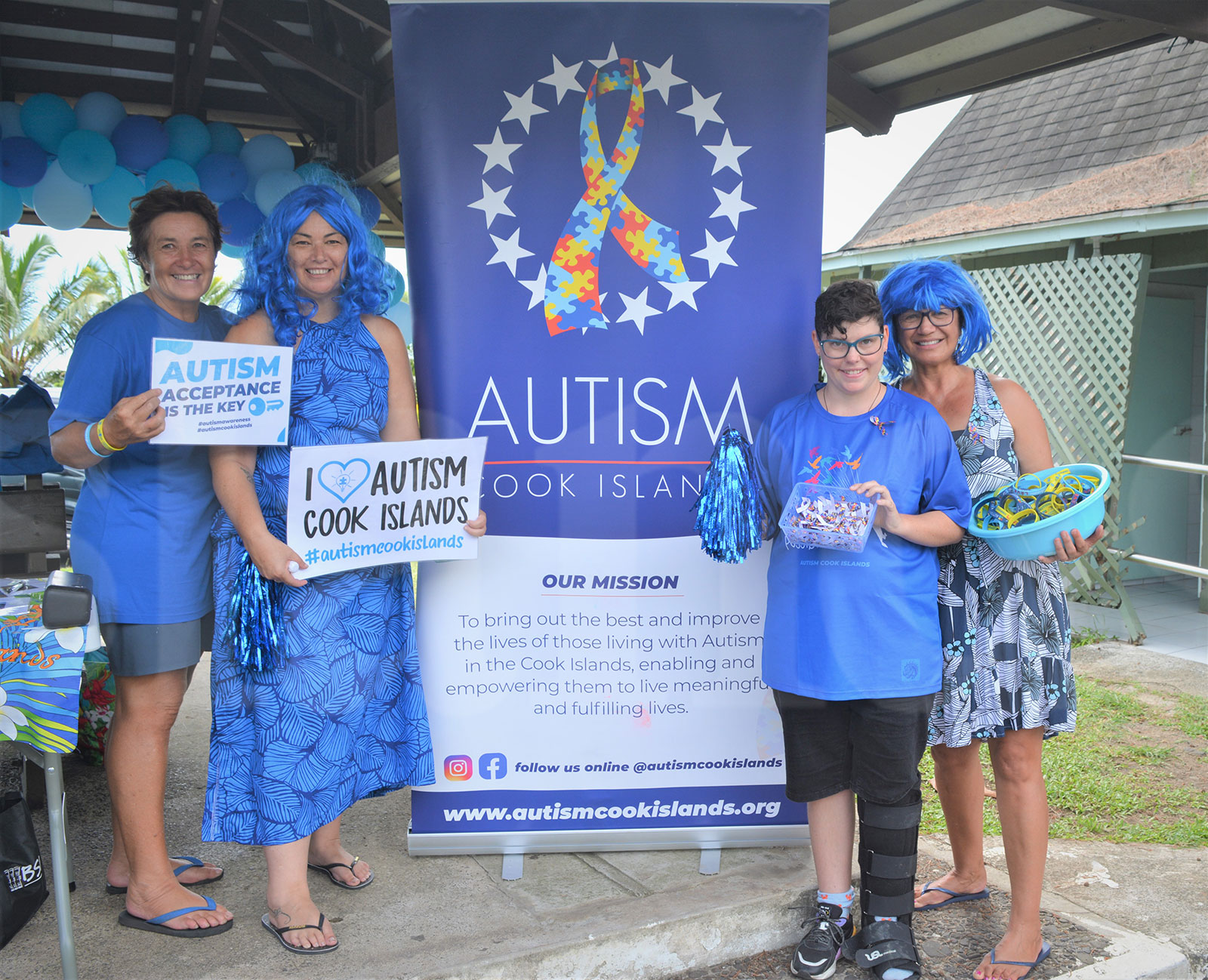Understanding emotions with Autism Cook Islands
Thursday 1 June 2023 | Written by Losirene Lacanivalu | Published in Local, National

Autism Cook Islands members dressed in blue. From left: Penny Murray, Autism Cook Islands programme manager Kat Jensen, Tyler Thompson and Pauline Jones. MELINA ETCHES/23040608
People with autism struggle with communication, sensory overload and understanding emotions says Kat Jensen, the programme manager at Autism Cook Islands.
“If you come across someone with autism who is lost they will likely be very anxious but may struggle to communicate this with you and are unlikely to respond well to questions,” Jensen said.
Jensen made these comments after the successful search of a missing teenager who wandered off from school a couple of weeks ago.
The young teen was a special needs girl. Two friends and ANZ bank staff Rahul Sharma and Usa Nawabalavu decided to join the search party and she was successfully found that night.
Jensen said, “This is another example of the awesome community spirit we are in that responds quickly when someone is in need.
“At Autism Cook Islands we have often been at the receiving end of Raro community generosity and kindness and we are always grateful and do our best to make sure we are serving our Autism Community as best we can.”
Jensen explained that each person with autism has a different level of ability in these areas and a few things you can do to help in this situation are;
1. Stay calm – If you’re not already, calm yourself down before you try and approach them and help them, otherwise you are likely to make them more anxious and this can lead to self-harm or running away.
2. Stay with them but respect their personal space – They may continue to wander and could get themselves into danger so best you stay close to them to keep them safe and easily located. Unless there is immediate danger or they’re emotionally distraught, best not to hug or physically touch them unless invited to. Physical touch from an unknown person can often heighten their anxiety.
3. Rule of 5 – Only use 5 words and wait 5 seconds for them to respond. For a person with autism all the things happening around them are loud in their head (the feel of the air, the street sounds, their hungry tummy, their sense of confusion if lost) so it takes a lot of effort for them to focus on what you are saying so keep it simple. It’s definitely a situation where less is more.
4. Get their details – whether you’re able to get their name, mum's name, school or just get a photo of them, this will be key information to share with the Police/ Community to help them find their family.
5. Find Common Ground – Take notice of what they’re wearing, what they’re holding, how old they are and try to find something of interest that you can talk to them about. Talking about their favourite topic will help calm their anxiety.
6. Just be there – Sometimes sitting in silence is all you need to do until the family is located. Share a bag of chips or a cold drink and wait.
What kind of support does Autism Cook Islands give parents?
Jensen said they provide supervised social programmes for kids – provide tailored social and education programmes for children with Autism that are fully supervised allowing parents to leave their kids to develop some independence .
They also provide:
1. Wellbeing sessions – Parent only sessions to provide opportunities for refreshing and refuelling as it can be a challenging role as a parent of a child with Autism.
2. Education sessions – Providing workshops for parents to learn about tools and strategies to help their children in communication, education and social and life skills.
3. Connection with specialists – connect families with specialists as available for tailored assistance for their child. Partner with parents, schools and other community groups to help find workable solutions for issues their children are having – whether it be educational, inappropriate social behaviours, sleeping and hygiene issues, basic household needs.




































